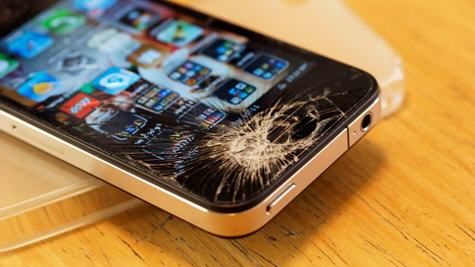One of the things I’ve developed over the years to cope with ADHD is the ability to leverage technology to remember things. This has proven extremely useful, and every day it seems like I learn some new trick to do things more efficiently.
But what happens when you don’t trust technology? Is it hopeless?
Let’s rewind for a moment: I’ve been writing articles here on how to use technology for years (and occasionally a rant when things don’t work). Sometimes, people just need help organizing their lives in today’s world. I’m no exception to this.
However, one of the most frustrating things I deal with, as a tech writer, is when the technology breaks, doesn’t work as intended, or abuses your data.
I’ve terminated my relationships with Evernote and Dropbox over their horrible security flaws. I’ve raked Google and Facebook over the coals repeatedly for their widespread abuse of user’s data. I refuse to pay the Apple “upgrade” tax. And Microsoft? Pft. I’d rather take a hot poker to the eye.
The Conundrum:
If I decide to rely on technology to keep my life in order, how am I supposed to entrust it to an untrustworthy technology company? How can I get my life together when I can’t trust the tools I must use?
As best I can see it, there are three options for those of us who rely on tech to manage our lives:
- Compromise my privacy and use the tools anyway
- Use more traditional (and inconvenient) non-digital tools
- Make my own digital tools
What happens if we choose what’s behind Door #1?
Well, not much, at first. Let’s say I decide to use Google to manage my calendar, email, contacts, tasks, writing, blogging, video, and everything. I’ve already got a Google account… all that stuff is already freely available to me! Why wouldn’t I use it?
Because Google is notorious for randomly changing things, deleting services, and changing ToS on users at the worst possible moments. Not to mention they monetize everything you do and see when connecting to their computers.
Would using Google work? Probably. But you can’t guarantee it will continue to work the way you need it to. Remember Google Reader? At one point, I had massive RSS lists and newsfeeds going through Reader. Then one day, Google just decided they didn’t want to support it any more, and it just vanished. What happens if they end-of-life Google Keep? Or restrict Google Docs? Don’t think they wouldn’t… Google has killed more products than they’ve kept.
All other big companies are just as untrustworthy for managing your life. You are taking a large risk by putting all of your eggs in one basket, as it were. This is not the ideal solution.
What’s behind Door #2?
Well, going back to doing things the old- analog- way. As I’ve said before, this is doable, but not convenient or easy. Who really want to carry a Rolodex around with them? Or a pocket planner… or one of those cheesy PDAs that were so popular back in the 90’s. It’s an option, sure- but keeping track of all of that stuff is counter-productive to organizing things.
Is #3 really the Magic Number?
First off, when I say “make your own digital tools” I’m not talking about learning to code and programming your own. I mean- you could do that, if you wanted. But there’s a much easier way.
What if, instead of using a third-party Big Tech provider to keep all your information, you could take a self-designed approach?
Remember those cheesy 90’s PDAs? They were essentially smartphones, without the phone, and not connected to the internet. Some of the later ones (like the iPaq, or Dell Axim) could be used online, but essentially, they were self-contained organizers. You could back them up to a computer, or maybe the internet- but it wasn’t required to use them.
So, let’s look at the smartphone again. Sure, they have Apple or Google apps built-in, but nobody says you have to use those apps. What if you used your own apps, and treated it like a PDA? You could still back it up for safety’s sake. Maybe sync it with a self-built Cloud server. Or even just plug in a USB drive once a week, and sync it that way. I know Motorola phones have an auto-sync software that isn’t internet-connected.
Here’s the thing: you can use third-party apps on your phone, and use something else (like NetGuard) to block all the Google apps from having ANY internet access. Over the last few years, I’ve tried several different non-Google apps for different functions, with varying degrees of success. But it is doable. There are all sorts of tools available out there, local-only and optional cloud-backup, that can let you get things done your way, without having to worry about whether they will discontinue the service.
Let’s Make A Deal!
Can you still use technology to help cope with ADHD? Absolutely. Can you do it in a way that’s reliable and respects your privacy? Definitely. Do you have to go through all those hoops to get started? Not really, no. If you already have a Google account- or Evernote, or whatever- feel free to use those things that you have at your disposal. If and when you want to step up your game to something more stable and secure, there are other options, which I’ll eventually be covering here.
Of course, you can always just go straight-up BuJo (which is slang for “Bullet Journal,” a very popular trend). Nothing wrong with pen and paper to get things done. That’s been a thing for centuries. But for me, even though I love analog… I have way too much information in my brain to store it all in notebooks.

